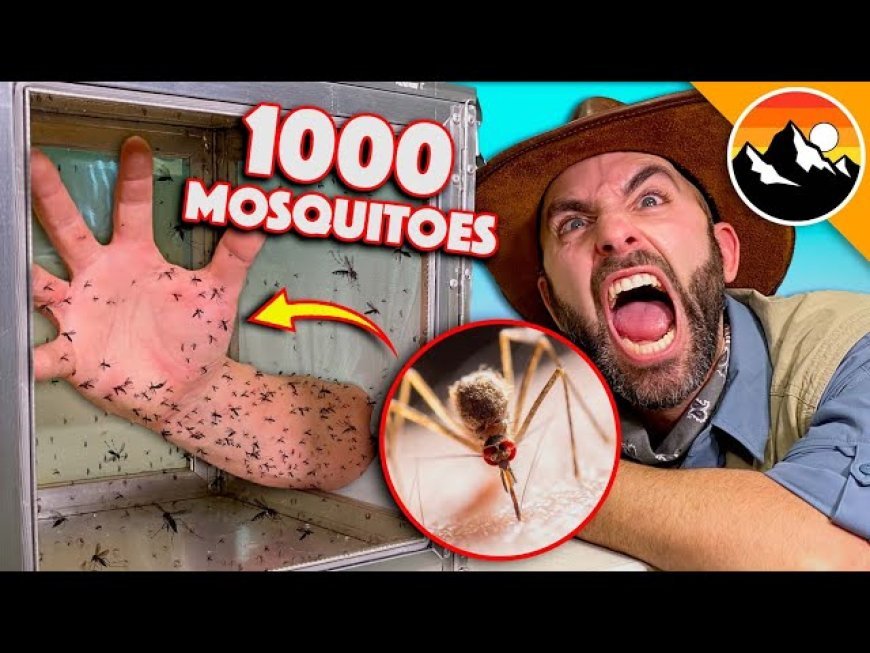Mosquito Attacks in the season of Summer.
Published: Jul 26, 2024 - 09:34

What's Your Reaction?



Or register with email
Join our subscribers list to get the latest news, updates and special offers directly in your inbox

As summer nights unfold and the outdoors beckon, one uninvited guest often makes its presence known—mosquitoes. These tiny insects, known for their irritating bites and high-pitched buzzing, can turn a relaxing evening into a frustrating battle. But beyond the nuisance, mosquito attacks carry significant health risks, making it crucial to understand their behavior, the diseases they transmit, and effective prevention strategies.
Mosquitoes are highly adept at locating their targets. Here are some factors that make humans particularly appealing to these insects:
Carbon Dioxide: Mosquitoes are drawn to the carbon dioxide that humans and animals exhale. The more you breathe, the more likely they are to find you.
Body Odor: Lactic acid, ammonia, and other compounds released in sweat can attract mosquitoes. Genetics plays a role in how much of these compounds individuals produce.
Body Heat and Movement: Mosquitoes are attracted to body heat and movement, making active individuals more susceptible to bites.
Dark Clothing: Mosquitoes use vision to locate their hosts and are more likely to target people wearing dark clothing.
A mosquito attack involves more than just a simple bite. Here's a closer look at the process:
Detection: A female mosquito (the only gender that bites) senses carbon dioxide and body heat from a potential host.
Approach: Using its wings to navigate, the mosquito lands on exposed skin.
Piercing: The mosquito uses its proboscis, a needle-like mouthpart, to pierce the skin and locate a blood vessel.
Feeding: As the mosquito feeds, it releases saliva into the bloodstream, which contains anticoagulants to prevent blood clotting.
Reaction: The body’s immune response to mosquito saliva causes the characteristic itchy, red bump.
While a mosquito bite might seem like a minor inconvenience, the health risks can be significant, especially in tropical and subtropical regions. Here are some diseases transmitted by mosquitoes:
Cause: Malaria is caused by Plasmodium parasites, transmitted through the bites of infected Anopheles mosquitoes.
Symptoms: Fever, chills, headache, and fatigue. Severe cases can lead to anemia, respiratory distress, and death.
Prevalence: Malaria is prevalent in Africa, South Asia, and parts of Central and South America.
Cause: Dengue fever is transmitted by Aedes aegypti mosquitoes.
Symptoms: High fever, severe headache, joint and muscle pain, and rash. In severe cases, it can lead to dengue hemorrhagic fever, which can be fatal.
Prevalence: Dengue is common in tropical and subtropical climates, including Southeast Asia, the Pacific islands, and the Americas.
Cause: Zika virus is spread primarily through the bites of infected Aedes mosquitoes.
Symptoms: Mild fever, rash, conjunctivitis, muscle and joint pain, and headache. Zika is particularly dangerous for pregnant women, as it can cause birth defects.
Prevalence: Zika outbreaks have occurred in Africa, the Americas, Asia, and the Pacific.
Cause: Transmitted by Culex mosquitoes, West Nile virus can affect the nervous system.
Symptoms: Most infected individuals experience mild symptoms, but severe cases can result in encephalitis or meningitis.
Prevalence: The virus is found in Africa, Europe, the Middle East, and North America.
Cause: Spread by Aedes mosquitoes, chikungunya causes severe joint pain.
Symptoms: High fever, joint and muscle pain, headache, nausea, fatigue, and rash.
Prevalence: Chikungunya is present in Africa, Asia, and the Indian subcontinent.
Given the health risks associated with mosquito attacks, prevention is key. Here are some effective strategies:
Applying mosquito repellent is one of the most effective ways to prevent bites. Look for products containing DEET, picaridin, or oil of lemon eucalyptus. Apply to exposed skin and reapply as directed.
Covering up can reduce the chances of bites. Wear long sleeves, pants, and socks when outdoors, especially during peak mosquito activity times (dawn and dusk). Light-colored clothing is less attractive to mosquitoes.
Ensure windows and doors are fitted with screens to keep mosquitoes out. Sleeping under a mosquito net is crucial in areas where mosquito-borne diseases are prevalent.
Mosquitoes breed in stagnant water, so removing potential breeding sites around your home is vital. Regularly empty water from flower pots, bird baths, and gutters.
Mosquito traps can help reduce populations around your home. Insecticides can also be used to treat outdoor areas and reduce mosquito numbers.
Certain plants, such as citronella, lavender, and marigolds, can deter mosquitoes. Planting these around your home or garden may help keep mosquitoes at bay.
The fight against mosquitoes has prompted innovative solutions to reduce their impact. Here are some of the latest advancements:
Scientists are exploring genetic modifications to reduce mosquito populations. By releasing genetically modified mosquitoes into the wild, they can mate with wild mosquitoes and produce offspring that die before reaching adulthood.
Wolbachia is a bacterium that can inhibit the transmission of viruses such as dengue and Zika. Releasing mosquitoes infected with Wolbachia into the wild can reduce disease transmission rates.
Developing clothing treated with insecticides offers an additional layer of protection against bites. This is particularly useful for people living in high-risk areas.
Innovative apps can help track mosquito populations and provide real-time alerts about outbreaks, allowing individuals to take precautionary measures.
Mosquito attacks are more than just a summer nuisance; they pose significant health risks worldwide. Understanding the behavior of mosquitoes and implementing effective prevention strategies is crucial in minimizing these risks. From using repellents to embracing technological innovations, a multifaceted approach can help protect individuals and communities from the dangers of mosquito-borne diseases.
By staying informed and proactive, we can enjoy the outdoors without the constant threat of mosquito attacks, paving the way for healthier and more peaceful environments.


